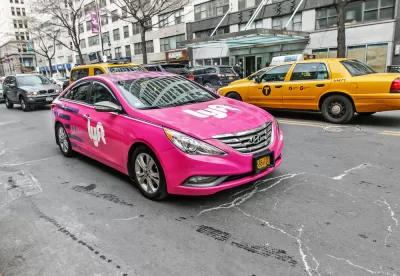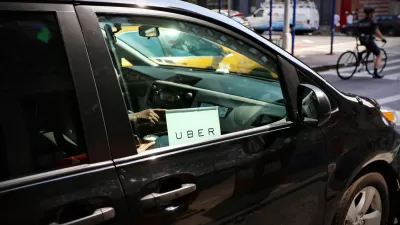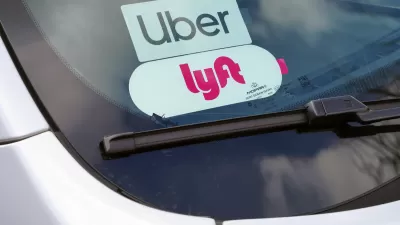A state bill would force gig companies to treat workers fairly and would stanch the flow of subsidies that keep customer costs artificially low.

The gig economy exploits workers, and California lawmakers need to fix a broken system, argues Zakhary Mallett. Assembly Bill 5 would limit the ability of companies such as Uber and Lyft to classify workers as independent contractors and would provide worker protections.
Mallett worked as an Uber driver, and he makes the case that riders are not paying the full cost of their trips. Instead, the rides are subsidized by underpaying workers and depending on venture capital. For example, he explains that driver incentives to work during certain times and in certain locations result in an excess of drivers, longer wait times, and costs that are not passed on to customers.
"Take, for instance, a 32-minute trip I completed from South of Market to San Rafael: I waited 24 minutes to get that trip after my last drop-off and took in $66.98, while the rider paid just $38.71 — meaning Uber lost $28.27 on that trip," he writes. Mallett also discusses the additional societal costs from drivers flooding city streets, including traffic congestion and decreased available parking.
"Similarly, the companies have circumvented antitrust principles by using venture capital to subsidize their services at the expense of taxis, rental car companies, private parking companies, public transit and more. This isn’t innovation in urban transport and deliveries; it’s innovation in ripping off people, cities and industries," he notes.
FULL STORY: The distorted economics of ride hailing must be fixed by California law

Alabama: Trump Terminates Settlements for Black Communities Harmed By Raw Sewage
Trump deemed the landmark civil rights agreement “illegal DEI and environmental justice policy.”

Planetizen Federal Action Tracker
A weekly monitor of how Trump’s orders and actions are impacting planners and planning in America.

Why Should We Subsidize Public Transportation?
Many public transit agencies face financial stress due to rising costs, declining fare revenue, and declining subsidies. Transit advocates must provide a strong business case for increasing public transit funding.

Understanding Road Diets
An explainer from Momentum highlights the advantages of reducing vehicle lanes in favor of more bike, transit, and pedestrian infrastructure.

New California Law Regulates Warehouse Pollution
A new law tightens building and emissions regulations for large distribution warehouses to mitigate air pollution and traffic in surrounding communities.

Phoenix Announces Opening Date for Light Rail Extension
The South Central extension will connect South Phoenix to downtown and other major hubs starting on June 7.
Urban Design for Planners 1: Software Tools
This six-course series explores essential urban design concepts using open source software and equips planners with the tools they need to participate fully in the urban design process.
Planning for Universal Design
Learn the tools for implementing Universal Design in planning regulations.
Caltrans
Smith Gee Studio
Institute for Housing and Urban Development Studies (IHS)
City of Grandview
Harvard GSD Executive Education
Toledo-Lucas County Plan Commissions
Salt Lake City
NYU Wagner Graduate School of Public Service





























